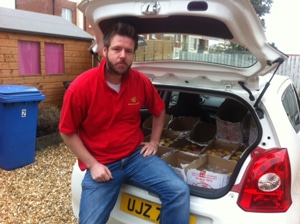
by Matthew Reap | Jun 17, 2016 | Case Studies
Gareth Bishop was in a bad car accident in 2007. Needing a new career he found that franchising gave him back his confidence and led him to charity work.
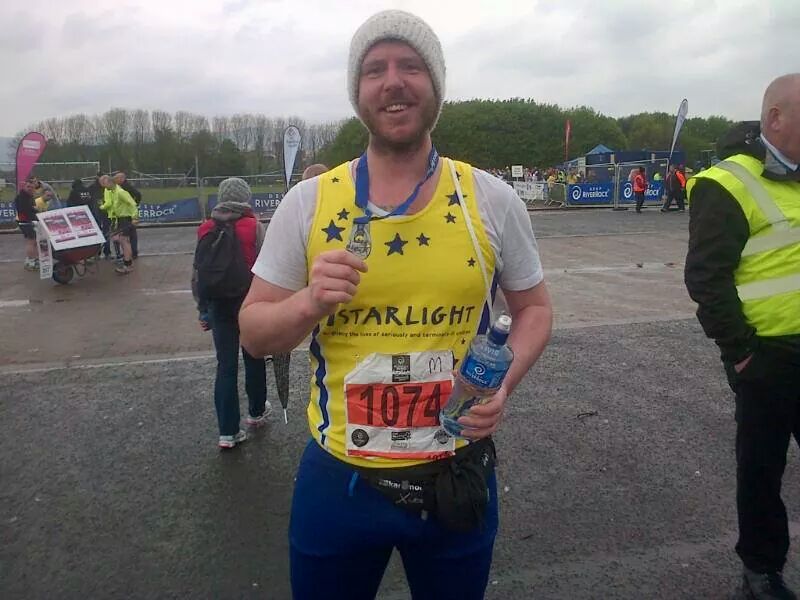
Gareth completing a marathon for Tubz chosen charity Starlight
How did you get started?
Tubz: Before you actually decided to invest in a Tubz business, what was it you were looking for and why?
Gareth: Well basically, I was in a bad car accident in 2007 so I couldn’t return to my normal job. So I had to look for something that was within my needs, and my ability, at that time. And the vending machine concept popped into my head.
T: What other options did you look at and why did you pick Tubz?
G: I was attracted to the franchise model because of all the help and support that was there. That was important after losing my confidence and ability in the car accident.
Tubz reassured me at the start and I bought 10 vending machines just to take a punt. And Tubz were true to their word. The stock and the machines arrived within a couple of days and then within a week after that the emails came through for my new sites. They delivered and I did my bit. And the rest is history.
T: So was the help and support the most important thing for you when you were evaluating your options?
G: Yes, definitely the help and support with coming out of a bad car accident. Just needing that support, that safety net, was really what attracted me.
T: Was it just yourself that was involved in the decision making process, or was there anyone else?
G: I had the help, support and guidance of my parents as well but basically I knew my own weaknesses and I knew my own strengths. I knew what I needed and what I didn’t, so ultimately it started with me.
 How did you find the set-up process?
How did you find the set-up process?
T: So you said it took about a week for the machines to get there. How long did it take you to actually get fully up and running?
G:: I was up and running with 10 vending machines in not that long at all. It was maybe eight weeks until I had all the stock and towers delivered and assembled, stickers put on, wrapped up and my sites as well. So they were located quickly.
T: Did the process itself meet your expectations? And everyone that was involved?
G: I was lucky enough to work with Chris and I went from 10 units first and it went smoothly, so I purchased 25 and again that went smoothly. So then I was confident enough to purchase 100 towers after that.
T: How many machines do you currently have?
G: Well at the moment I’ve got about 135. I’ve started to do the Pringles machines as well, so I started to put those alongside the Tubz towers. I’ve got about 35 towers in storage at the moment and I’m just waiting to get more new sites.
T: So have you experienced any other benefits since starting your Tubz business?
G: Well obviously I basically went from a car accident and benefits, to managing my own franchise.
Also Tubz work with the charity Starlight, so I started doing charity work for them, and Tubz made that relationship happen pretty easily. It was only a matter of sending Starlight an email saying that I’m a Tubz franchisee and that opened up the door for me to do charity work as well which is deeply rewarding.
I climbed Kilimanjaro for Starlight so that’s a direct benefit as well. It kind of planted that seed in my mind to do charity work. So that was a huge benefit for me.
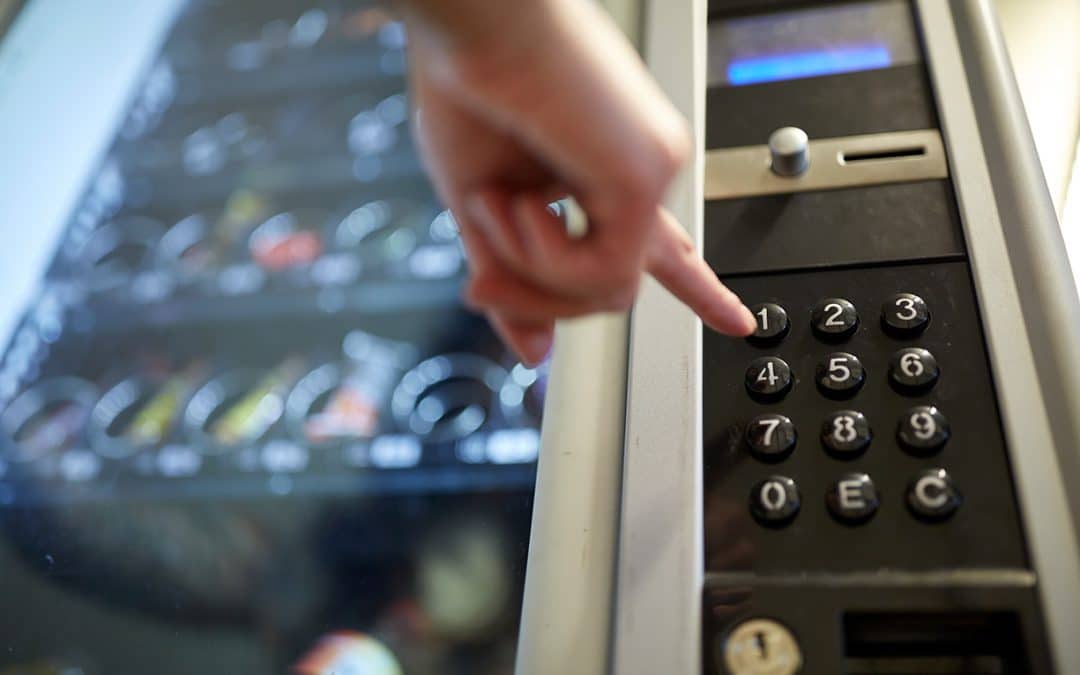
by Matthew Reap | Jun 13, 2016 | Advice
If you’ve been exploring vending machine franchise opportunities, you probably have a list of questions the length of your arm.
From how much it will cost to restock machines, to how much time you’ll need to invest in refilling and maintaining your machines, there are lots of important questions to ask your potential franchisor and to work out for yourself.
One question we often hear from would-be franchisees is:
“Which vending machine is the most profitable”
If you’re researching vending machines it’s important to underline that there are a number of factors which influence profitability, from products, to location.
This means that no two machines are alike in terms of profitability. It is possible, however, to highlight some particular trends which offer clues about what vending machines profit the most.
These are the trends we’ll be exploring in this article.
The Variables
Before we try to answer what vending machines profit the most, let’s consider the variables that affect their profitability before exploring them in more detail:
Products
The products a vending machine sells will influence its profitability. For example, a machine stocked with sweet snacks and treats may not do well at a health centre, while healthy snacks may not go down as well at a play centre or pub.
Of course, this is a huge simplification, research into local demographics are key to understanding which products will be most successful in which locations.
Machine type
 From hot drinks machines, to change machines, tower style vending machines to more conventional snack options, there are lots of different types of machine you may choose to operate.
From hot drinks machines, to change machines, tower style vending machines to more conventional snack options, there are lots of different types of machine you may choose to operate.
The profitability of each depends, again, on matching your selection to the demographics in your location. Machine type can also affect franchise costs; namely the resources you’ll need to invest in maintenance and restocking.
Location
This really is an important variable which affects which vending machine is most profitable.
Machines in high footfall areas will always perform better and, if you can match your machine type and your products to your location, you can enjoy even better performance.
Profitability: Putting it all together
When considering what vending machine profits the most, assessing each of the above factors in conjunction with one another is essential.
The three are closely interrelated and, when combined, they will help potential vendors establish the most profitable possible machines.
Products
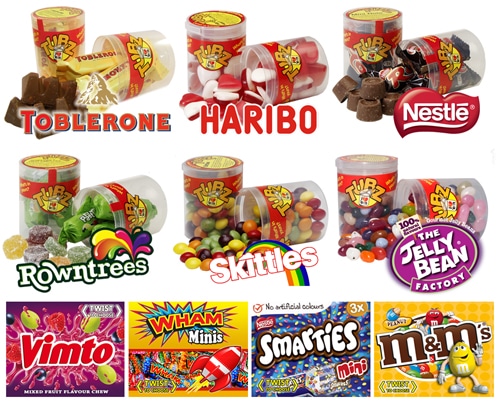
Unfortunately, there are no hard and fast figures which clearly indicate exactly which products are purchased most frequently from UK vending machines.
However, snack machines come out on top time after time according to industry experts. In the US, however, Automatic Merchandiser recently released this list of its top selling snacks in dollar sales:
1) Snickers
2) Doritos Big Grab
3) Peanut M&Ms
4) Cheetos Crunchy
5) Cheez-It Original
6) Twix Bar
7) Strawberry Frosted Pop-Tarts
8) Rice Krispies Treats
9) Lay’s Chips (Walkers crisps)
10) Mrs. Freshley’s Jumbo Honey Bun
As you can see, a range of chocolate bars, crisps and bite-sized snacks tops the list in the US, with plenty of variation in the top 10 regarding product type.
Clearly offering a range of products, designed to tempt all tastes, is an important part of operating a profitable machine.
The profitability of offering healthy alternatives, or wholly healthy machines will depend largely on the location of the machine.
Machine types
When it comes to the type of machine used, again, there are few representative figures available for the UK snack industry. Like product type, however, location is fundamental to the type of machine you choose.
At Tubz Brands we use vending towers, which have several benefits over other machine types:
– They are light and easy to transport compared to other vending machines.
– They are non-electrical so easy to maintain and repair.
– And they are not obtrusive so easy to find sites for.
These factors mean greater flexibility and lower franchise costs than with bigger, electronic machines.
Location
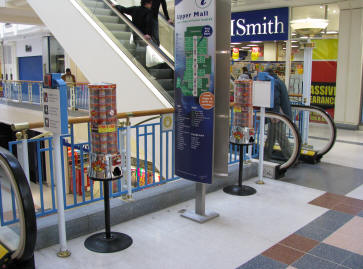
To assure profitability, potential vendors may consider conducting research at possible locations, using questionnaires to find out about the habits and preferences of the area’s demographics.
Assessing which shops are in the local area may also help you plug a gap in the market.
Learning more about the different activities conducted nearby will also help you choose a machine type (and product type) that brings in the greatest possible profit.
If you want to know more about the vending machines available at Tubz Brands just contact the team today at: info@tubzbrands.co.uk or 01795 414 480.
Image courtesy gimmevending.com

by Matthew Reap | Jun 3, 2016 | Advice
If you’re thinking about investing in a franchise, there are a number of factors which may have enticed you to reach this point:
– The freedom of being your own boss without the stress and uncertainty of launching your own start up.
– The ability to “hit the ground running” with an existing brand and build success quickly.
– The comparatively low cost of getting started compared to starting a business.
– The flexibility of working for yourself…
No matter what has drawn you to want to learn more about franchising, however, there is one question which every prospective franchisee wants an answer to:
“Are franchises worth it?”
Do franchise owners make good money?
Are franchises profitable?
These are the most fundamental questions all aspiring franchisees mull over and seek answers to. The problem is: it’s not that simple…
From business models, to franchise locations and franchisee experience, a huge number of considerations will affect the profitability and “worth it”-ness of a franchise.
What constitutes “worth it” is also a grey area: Is the ability to earn a living as your own boss “worth it”? Or do you require a certain take home slice financially to consider franchising a viable professional next step?
In this article we’ll delve into a few of these issues to help you weigh up the pros and cons and gain a few insights.
How much can I make?
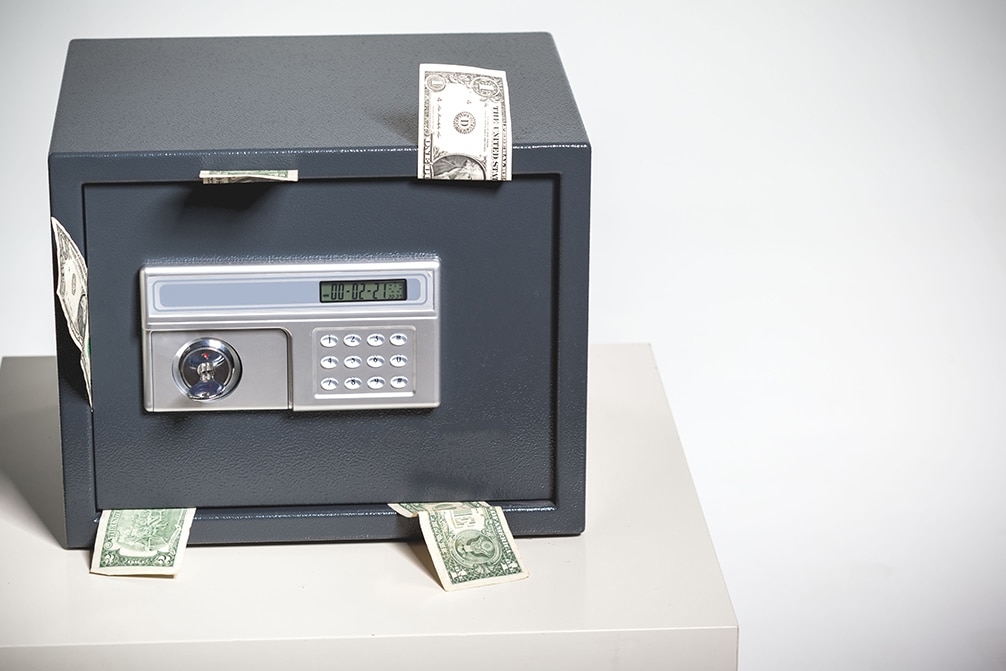
Safe with money
First things first, let’s talk cold, hard cash.
Before we consider how much franchisees can stand to make in numerical terms, it’s important to underscore that business profits are not the same as personal income. Before you can pay yourself, you may need to cover costs like:
– Franchise fees
– Employee wages
– Loan payments
– Business reinvestment
– Tax
So, are franchises profitable?
The short answer here is yes.
If you’ve been careful with your franchise selection, trust your franchisor, have seen the model prove successful in practice for other franchisees and have the experience to operate the business well, you can make money.
The good news is that, in the UK, franchise profitability is on the rise. According to the bfa’s (British Franchise Association) latest franchising survey in conjunction with NatWest, 97% of franchising units reported profitability in 2015, with the franchising industry as a whole now contributing £15.1bn to the UK economy (up 46% since 2005).
Other factors you should consider to maximise your profits include the following:
-
Location
Every location is different, with different levels of foot traffic, visibility and suitability for an area’s demographic. Your location can have an impact on your success, particularly how quickly you can build custom in a new area, which will affect profits.
-
Business models
The way the franchise you invest in is run will also impact your profitability. Different franchising models exist which can affect how much franchisees pay and/or are able to learn. Some will take a flat fee, others a percentage cut, some like Tubz Brands just a one off payment.
-
Business type
From Zeitgeist-capturing “trendy” franchises which fall out of fashion in a couple of years, to steady businesses which see a steady stream of custom over the longer term, the type of franchise you choose to invest in will affect its profitability.
-
Your experience
Do you know how to manage money? What about managing people? And managing marketing? Many franchisees go on a steep learning curve when they embark on their franchising journey, but the more you know, the faster you can start making your new business as profitable as possible.
How much do franchises make?

Large Pile of Cash Money From Creative Bug Perspective. Euro Banknotes.
The answer to this question again depends on the type of franchise you’re talking about. In very broad, general terms, 2015 saw average franchise turnover rise. Half of all UK franchisee-owned businesses claimed to make over £250,000 in the same year.
Of the 97% of franchisee-owned businesses in profit, 56% claimed to be either “quite” or “very” profitable.
Equally revealing is the fact that ownership change in franchise-owned businesses is incredibly low, far below the number of startup failures.
Just 4.6% of franchisees left their position in 2015, indicating that profitability is very possible and is, most likely, “worth it” for the majority of individuals who go into franchising.
Although it’s hard to give an exact answer to the question of how much you stand to personally make (based on the broad range of business types in the franchising industry), it’s clear that the majority of those who take on a franchise do profit and consider their professional move to be worth it.
Tubz Brands have laid out some information on how much you could earn based on their different business bundles on this page. Of course this is an estimate but based on real data and the experience of many successful operatives.
If you want to find out more about the stories of current Tubz franchisees, take a look at some testimonials or case studies and success stories.
And if you want to find out about whether franchising could be worth it for you, contact our team today via: info@tubzbrands.co.uk or 01795 414 480.
Image courtesy AMC.
by Matthew Reap | May 20, 2016 | Uncategorized
If you’re an aspiring entrepreneur, there’s no overlooking just how powerful a resource the world wide web is when it comes to expanding your knowledge base, growing your skill set, getting the latest industry updates and identifying big opportunities. Social media plays a huge part in this phenomenon and Twitter in particular can put truly crucial and inspirational information right at your fingertips.
You may already be following the top 20 accounts belonging to franchising experts which we recommended back in July 2015. If so, we’re sure your feed is already full of essential insights into franchising, the latest think pieces from the industry and plenty of helpful tips for newcomers, but we want to make your feed even more inspiring and informative…
(more…)
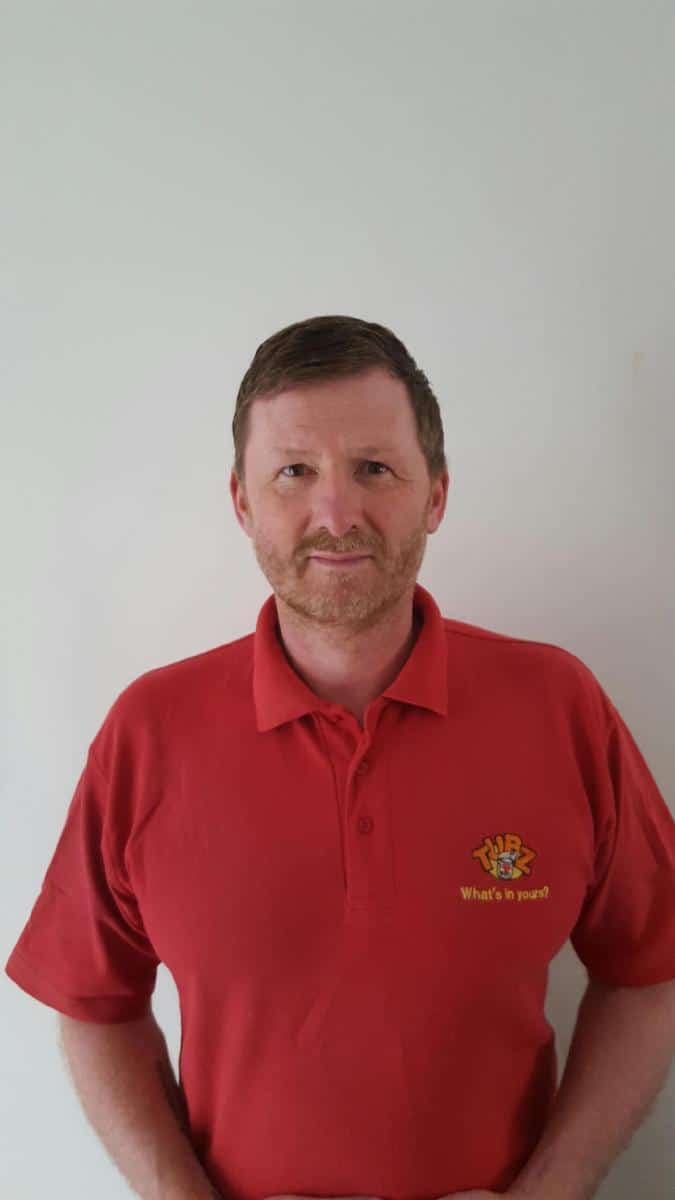
by Matthew Reap | Apr 29, 2016 | Case Studies
Russell Orme has worked in franchising his whole life and decided the best next step for him was a vending franchise. Since then he’s managed to cut his previous working hours in half and goes on four holidays a year.
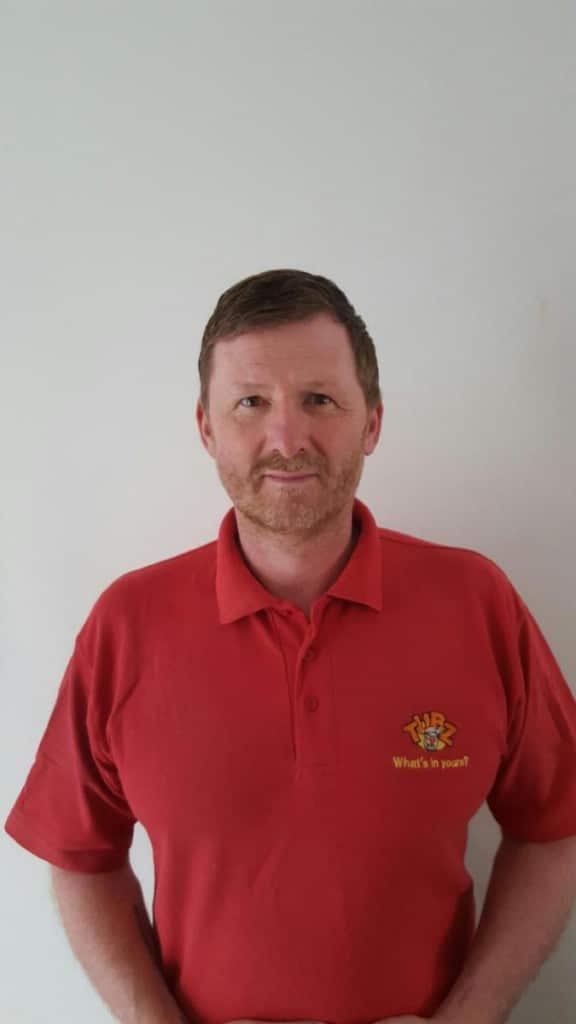
How did you get started?
Tubz: How did you get started with Tubz?
Russell: I started with a hundred bundle because I knew I was going to be doing it full time. Five years on, I’ve got 230.
In the last five years I’ve invested when and if possible. Half are sweet machines, half are Pringles machines, and I have around five or six toy machines.
For those 230 I’ve probably got 120 sites, as most of my machines are in twos in each venue. So it cuts your fuel costs down and when you get to a venue you’re collecting two, three, four machines when on a normal basis you’d be collecting one.
T: Is that working well for you?
R: Yes, of course.
T: What did you do before this business?
R: I’ve only had three jobs in my life. I was a milkman for 11 years on a franchise basis, then I moved into petrol stations for 10 years on a franchise basis, and then I’ve just had Tubz.
Why change?
T: Why did you want to move from petrol stations to this kind of franchise?
R: The petrol station was 24 hours a day, 70 hours a week. I wanted to halve my hours, so this is what I looked at. I looked at a few other businesses first but this is the one that me and my financial adviser chose because of the minimal risk. I haven’t looked back.
T: So how much did you invest at the beginning?
R: For the hundred, it was £20,000 but you’ve got to go for it if you want to work full time. Obviously, I’ve got my money back now five years down the line. I should imagine it’s probably worth £60,000 now with the amount of investment I’ve made. That’s what you’ve got to look at.
What challenges have you faced?
T: What challenges were you expecting when you first started up with the Tubz business?
R: You’ve got to make sure you’ve got the right kind of clients and the right kind of footfall. You’ve got to get the machines out first and then you’ve got to give it another month to see how things are going. That was the first major task and then it was finding routes and finding out when sites are open.
T: How long is your working week?
R: I probably do around 30 hours a week now, cutting in half my previous workload which was in the petrol stations. That’s what I wanted to do and I’ve done that.
T: That was the goal, to cut your working hours?
R: You can’t just keep doing 70 hours a week. Staff are ducking, you’ve got to do their hours as well. No, it’s impossible. So after 10 years, I’d had enough.
How has your lifestyle changed?
T: It must have been a change to your lifestyle taking on the new business?
R: Yes, it was. I wasn’t getting any time at home, really. I looked at that as well as other franchise options and saw that with Tubz you could leave the machines for a week and still be earning a little bit of money. Plus at the end of my time running petrol stations I’d lost £19,000 in drive-offs alone, so that stress is gone.
T: So its had a real impact on your free time?
R: We just got back from Mexico last week.
How do you run your business?
T: You say you have about 230 machines now, do you manage those by yourself?
R: Yes. As I’m just talking to you now I’m at a site.
T: Is the flexibility something you’re happy with?
R: Absolutely unreal. I went down to Tubz and met everybody, I’ve got them on Facebook and we’ve got a dream team. I get on with them there pretty well.
T: It sounds like it’s had a real positive effect on your life.
R: The hour cutting and and halving the workload, and I’m on my own. I don’t have to rely on anybody else. If you’ve got staff that are moaning and complaining they can’t come in, that part of it I don’t miss whatsoever. Now I can pick my hours whenever I want to. I haven’t got to get up at two in the morning and cover somebody’s shift. I can go at ten in the morning or six at night; it doesn’t really matter. I’ve worked it to my advantage. I tend to have three or four holidays a year now.
T:How challenging is the day-to-day running of the business?
R: Let’s put it this way, we came back from Mexico and I had about 13 or 14 calls, a couple of emails and I’d got through 20 boxes of Tubz products in 6 days.
What are your plans?
T: So you’re happy with 230 Tubz machines at the moment?
R: We’ll see how it goes when I’ve got some more money. I know some of the Tubz people, they’ve got 300 and 400 machines but I’m sure they need people to go around with them.
T: At a certain stage you would need staff?
R: You would, it would be impossible. Then it’s a money issue and it’s a trustability thing. That was the thing with garages. If you had any days off you were wondering what was going on. If you’re on your own, it’s only down to yourself.
T: So you’re happy going solo for the moment?
R: I wouldn’t do it any other way now.
You can see Russell’s testimonial here, and other franchisees discuss their success stories here and here.
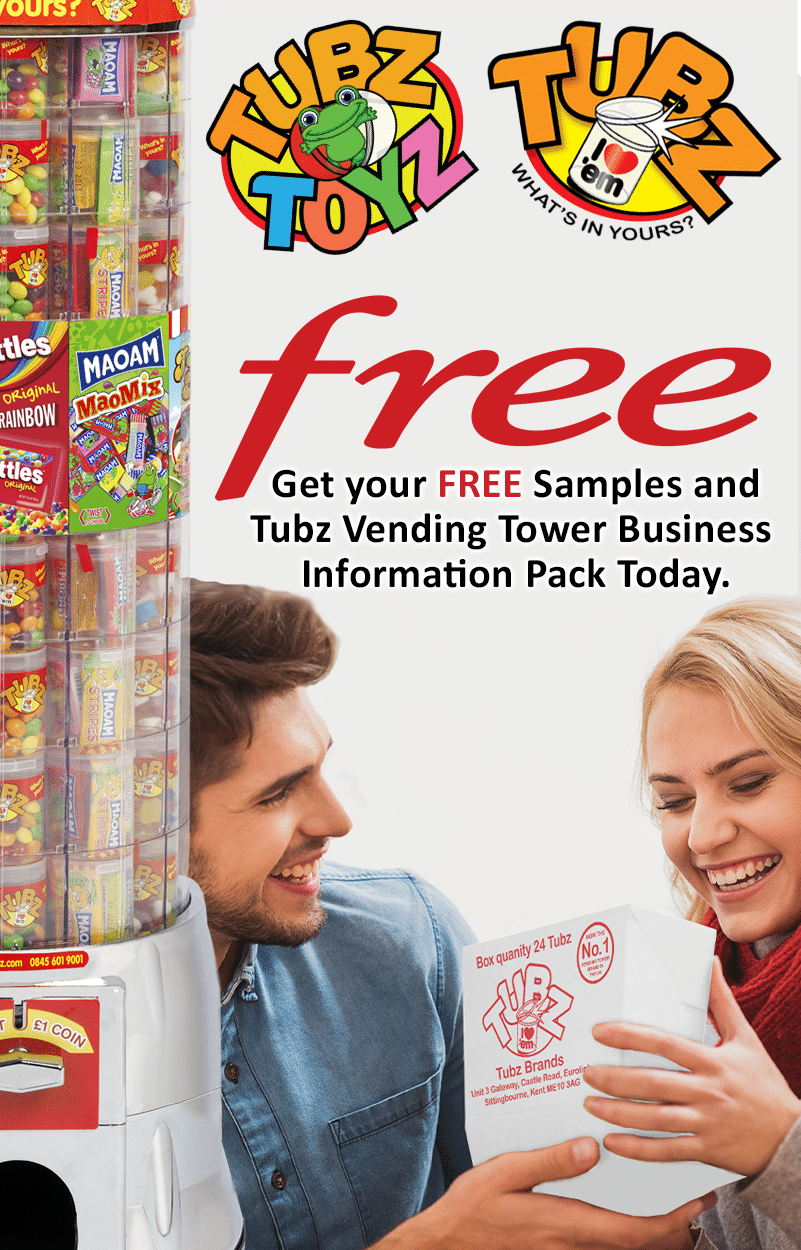


 How did you find the set-up process?
How did you find the set-up process?

 From
From 






